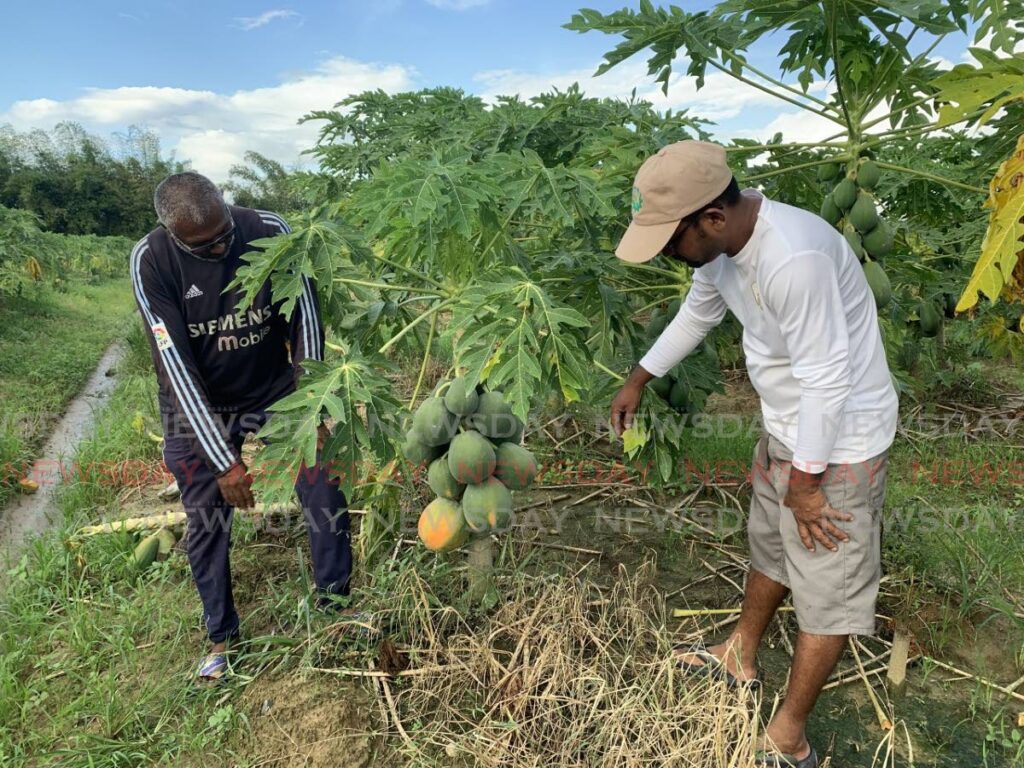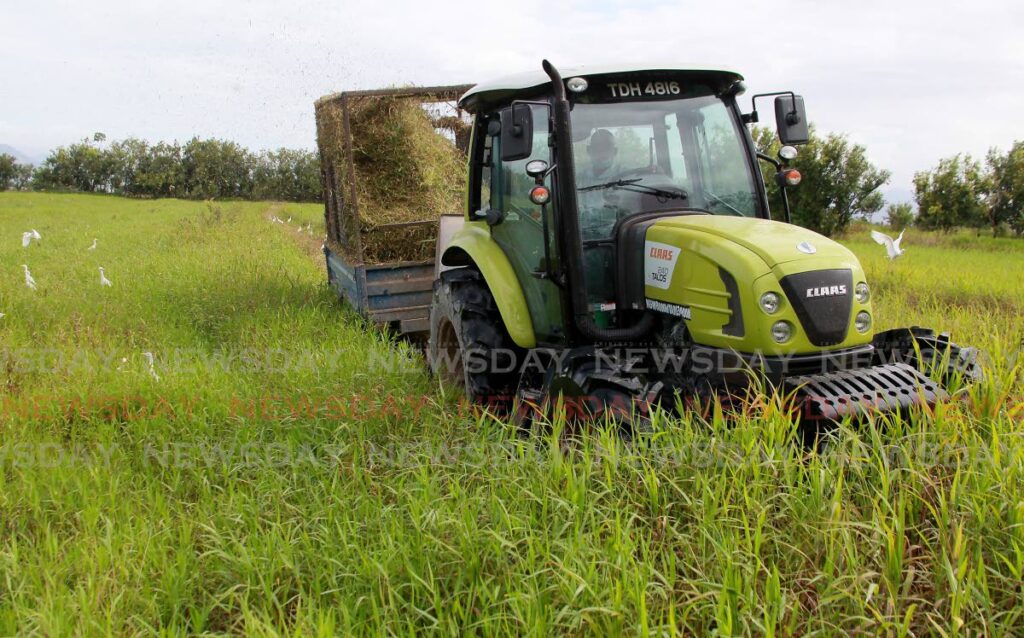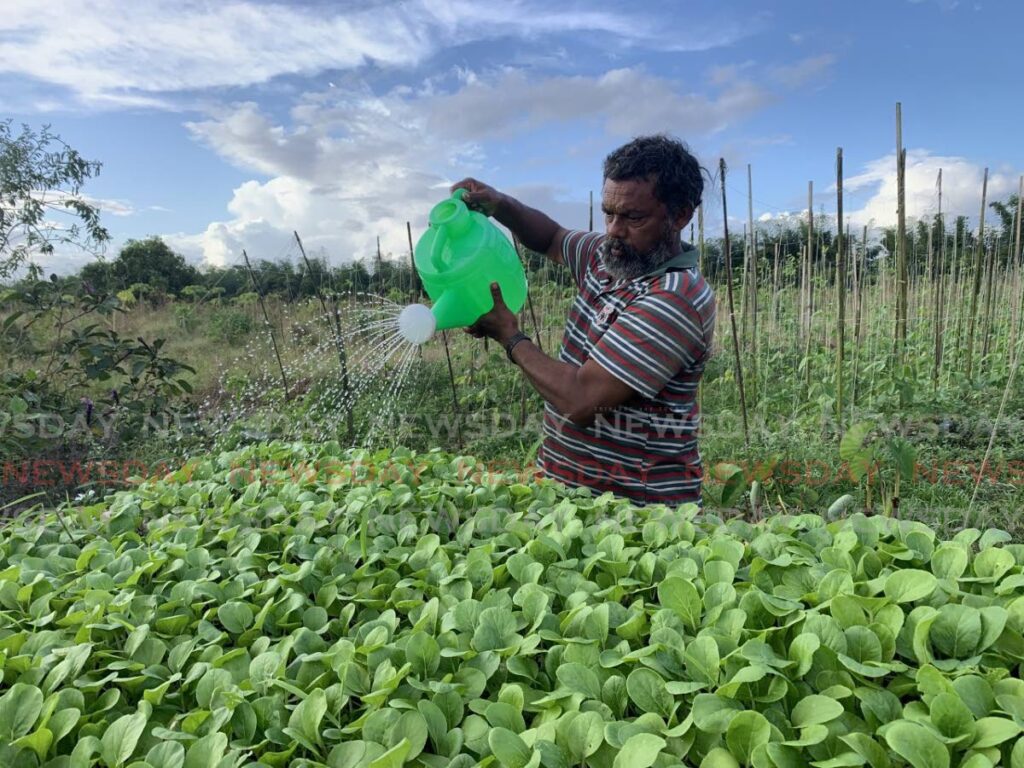Cunupia farmers losing hope in agriculture sector

After taking a look back at 2022, president of the Jerningham Junction Farmers Association Marlon Mathura said it’s “very poor.” He went even further to say that he feels like there’s no hope for farmers.
“I losing hope, I am losing farmers and I am losing members in my association. Nobody is doing anything.”
Mathura said many farmers were plagued with infrastructural issues that they alone couldn’t have handled and the high prices of chemicals needed. He also estimated the loss to the entire association which is made up over 200 farmers to be over $1 million.
He said the prices chemicals farmers use regularly have increased by between 200 and 300 per cent and is still going up while many drains in Jerningham Junction, Cunupia need desilting.
“Our drains haven’t been desilted in going on eight years now, infrastructure wise, praedial larceny is a big problem as well.”

Mathura has already planned for the future if he stops farming and said, “Well, the easiest thing I can think of is to drive taxi or cut back and just mind my family. That’s the only thing I’m seeing right now.”
He said farmers are “bawling” even with the allocation of $795,240,000 to the Ministry of Agriculture, Land and Fisheries which was announced in the 2022-2023 budget in September. Many farmers won't be able to reap the benefits.
Mathura said land tenure is the biggest problem within the farming industry; 60 per cent of farmers do not have land tenure to be registered. He explained that farmers must have proof of owning land before they can apply for a loan from the Agricultural Development Bank making it difficult for them to prosper.
Some of the projects listed in the summary of the ministry's expenditure, divisions and projects are the expansion of sanitary, phytosanitary (the control of plant diseases) and food safety capabilities, the development of Mon Jaloux Forage Development Centre and La Gloria Forage Farms, the establishment of a central farmers wholesale market and provision of infrastructure for the Praedial Larceny Squad. Many others were also listed and can be found on the Parliament website.
Farmers were also allocated $500 million in 2021 to somewhat ease the strain of the covid19 pandemic, when Clarence Rambharat was the minister. Rambharat also embarked upon creating food packages using only produce from local farmers to feed 125,000 families.
On this Mathura said, “I wish the government can be more farmer-friendly. Make all these programmes farmer-friendly and review these incentive programmes.”
He added that he is expecting the number of farmers in his association to decrease as the problems are seemingly never-ending and it’s too difficult for them to receive help.
Supermarket Association of TT (SATT) president Rajiv Diptee looked at the impact of climate change on food security.
He said the year, “has also been extraordinarily hallmarked by the vicissitudes of climate change. Changing weather patterns are affecting productive capacities on crops in various external regions. From record measured rainfalls to prolong periods of drought, it has implications for the surety of supply worldwide where markets are affected. This has affected the global supply especially for our region and will be a feature of how we continue to plan for 2023.”
He said this can help farmers look at their commodities from a “new farming method” perspective which will supply local and possibly regional demand.
Diptee added, “The internal and regional architecture of food security came vividly into focus in 2022. As we place covid19 on the back-burner, it is important to note the pandemic still meaningfully lingers in tangible means that affect the continuity of daily operations. Our ability to reduce our exposure to externalities through avenues such as agriculture, agro-processing industries, ease of doing business cannot be understated.”

Diptee said SATT is looking forward to a sustained economic recovery and to welcome initiatives that ensures no one is left behind in 2023.
“My sincerest wish is the ‘upliftment’ of every single citizen into productive avenues which gives them the chance to provide for themselves and loved ones.”
TT and Guyana both hosted agri-investment forums and expos this year in hopes of reducing the Caribbean billion-dollar food import bill by 25 per cent by 2025. The theme for forum and expo hosted in TT was “transforming agriculture through innovation and investment” and it was held at the Queen’s Park Savannah on August 19 for three days.
Shortly after from September to early November, TT experienced constant rain and bad weather that left many flooded out of their homes and now a shortage in crops. The most recent instance of this is the sorrel shortage that was reported on in last week’s Business Day. Due to heavy rains, there was no chance for the floodwater to drain from the land leaving acres of crops destroyed and inedible, or farmers had to reap a limited supply than normal.
Seeing this situation, the prices of commodities would drastically increase because of scarcity and would only decrease once production can keep up with the demands. Farmers have predicted that these high prices can drop soon as TT will be entering the dry season – January to May.

Comments
"Cunupia farmers losing hope in agriculture sector"